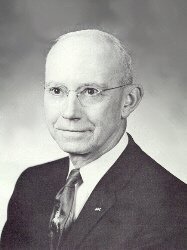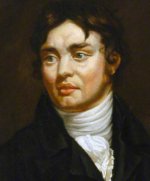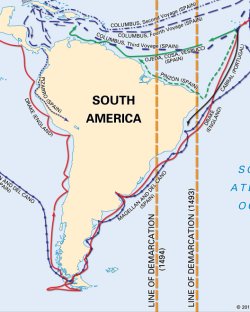The quest for the Double Ruby. Continue reading
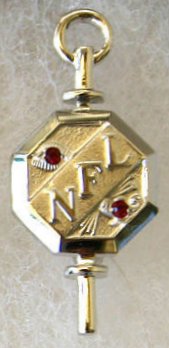 Before my senior year at Rockhurst I had paid little attention to the NFL (National Forensics League, renamed in 2014 as the National Speech and Debate Association). The school had long sponsored a chapter of the league, and our results from tournaments were always sent to the NFL headquarters. Debaters all had NFL pins, and most guys wore them to competitions. The inlaid gem(s) indicated ranking in terms of points accumulated. The highest rank at the time was double-ruby, which indicated 500 points earned. Points were awarded for debates, rounds in speech events, and miscellaneous speaking events, including the state’s annual student congress. The maximum number of points in each category was limited.
Before my senior year at Rockhurst I had paid little attention to the NFL (National Forensics League, renamed in 2014 as the National Speech and Debate Association). The school had long sponsored a chapter of the league, and our results from tournaments were always sent to the NFL headquarters. Debaters all had NFL pins, and most guys wore them to competitions. The inlaid gem(s) indicated ranking in terms of points accumulated. The highest rank at the time was double-ruby, which indicated 500 points earned. Points were awarded for debates, rounds in speech events, and miscellaneous speaking events, including the state’s annual student congress. The maximum number of points in each category was limited.
This method of scoring suited my style perfectly. I participated more and in more varied events than anyone else on the team. My results had not been stellar, but early in the year I calculated that I could possibly amass 500 points by the end of senior year. It seemed like a reasonable goal, but it meant going to a lot of tournaments and other events. I decided to go for it.
Our NFL chapter elected a president and vice-president every year. My recollection is that Bill Locke was elected president, and I was vice-president. Since Bill was playing football during the tournament that Rockhurst sponsored each fall, it was my responsibility to “run it”. I don’t remember that I actually did much. Mr. Marchlewski and Mr. Rothermich did most of the preparation and tabulation of results. I might have arranged for timekeepers or something like that. At any rate, everything seemed to go pretty smoothly.
The NFL at that time awarded trophies to schools that had amassed a large number of points over the years. It just happened that Rockhurst won the trophy my senior year. Bruno Jacob himself, the founder and patriarch of the NFL, paid us a visit. All of the students assembled in the gym for his presentation of the award. I was chosen as master of ceremonies.
The students were seated in the bleachers on either side. A lectern with a microphone was placed halfway between one of the basketball goals and midcourt. A wire ran from the lectern back to a corner of the gym. Mr. Jacob, myself, and some faculty members were seated in folding chairs behind the lectern. I have no idea who was responsible for the setup. I had never been involved with one of the assemblies.
The microphone did not work, and no one seemed available to fix it. I went on without it, and I think that I did a pretty good job of projecting my voice. However, I could hardly hear Mr. Jacob’s presentation at all, and I was only a few yards away from him. So, most of the students probably had no idea what he said. It was not memorable enough to last for in my brain for fifty-five years either.
Since Bill Locke was busy on the gridiron, I got to debate with John Williams for the first few months. We did exceptionally well together, winning almost all our debates. However, when Bill came back, he was paired with John again, as he should have been.
I am pretty sure that I had participated in the annual student congress event in my junior year at the RLDS headquarters in Independence. I had been very active and won a lot of NFL points.
I think that the congress in my senior year was held at the state capital in Jefferson City. I was somehow chosen to give the prayer to open the session. For a second my mind went blank (for the first and only time ever in a public speech), but I recovered and said what I intended. I did not take the advice of a student from St. Louis University High (another Jesuit school) to start the prayer with “Almighty God, if you exist, …”
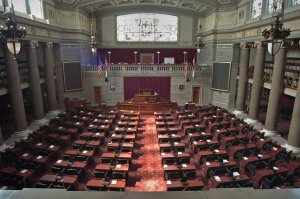 I worked pretty hard preparing for all of the bills, and I received high marks from the judges in the first session. I was selected to chair the second session. I was surprised to discover that the first chairman had not made a seating map. I made one for myself so that I could fairly allow people to participate. Even so, the coach from (I think) Fort Osage High School interrupted the session and humiliated me by insisting that I call on people whom he designated. That soured the experience for me, but I still won quite a few NFL points.
I worked pretty hard preparing for all of the bills, and I received high marks from the judges in the first session. I was selected to chair the second session. I was surprised to discover that the first chairman had not made a seating map. I made one for myself so that I could fairly allow people to participate. Even so, the coach from (I think) Fort Osage High School interrupted the session and humiliated me by insisting that I call on people whom he designated. That soured the experience for me, but I still won quite a few NFL points.
My best moment almost occurred in the finals of the extemp event at a tournament in senior year. I don’t remember which one. In extemp you draw three topics, select one, and then spend 30-45 minutes crafting a speech on the topic. I think that the time limit was 5-7 minutes. My topic was whether the Republican Party was doomed after the Goldwater fiasco of 1964. I argued that the party would bounce back because of some younger people like John Lindsay, Chuck Percy, and a couple of others whom I can’t remember. Two of the three judges ranked me first, but the other judge, who said that he was a Republican himself, claimed that my speech was too obviously biased in favor of the GOP. So, I lost out to a guy who got a first, a second, and a third.
Incidentally, both of my parents were Democrats. My dad told me that in 1948 he went into the voting booth intending to vote for Dewey, but he couldn’t do it. I have never even considered voting for a Republican, and I had several chances to vote for Lowell Weicker, who was very popular in Connecticut.
I started doing better in extemp because of some advice from a fellow extemper from Parkview High in Springfield. I noticed that he spent no time researching his speeches and little time writing or rehearsing. He explained that he mostly made up the facts that he cited and that he usually started his speeches with “Wasn’t it Coleridge who said …?” He insisted that this was kosher. “I didn’t say that Coleridge said that; I merely posed the question.”
I was too much of a Boy Scout to do that. However, I did lighten up a little. Once, in a tournament at St. Paul’s in Concordia, MO, I was in a bind. The guy who selected the topics wanted to make life miserable for extempers. The three that I chose included one on fashion, one on a relaxation technique, and one on the effect of the Papal Line of Demarcation of 1493 on Latin American politics.
I had heard of the last one—the pope ceded the east to Portugal and the west to Spain. However, at that point in my life I did not know the pope’s name. I knew a few pope’s names that were fairly common; so I just called him Pope Urban.1 I argued that Portugal was too weak to control its properties for very long, and Spain was likewise unable to control its more distant properties. So, in the end all of South America was susceptible to foreign influences. In the sixties that opened the door to Communism. I had no evidence whatever to make that claim, but at the time it seemed like something that Time or Newsweek might say.
I finished second in the round, which earned some NFL points. That was a lot better than I would have done talking about fashion.
In the NFL state tournament I got to the semifinals in extemp. I didn’t expect to win, but my goal was to make the finals. I did make the finals of another unusual event, oratorical declamation. The idea was to deliver a speech that someone else had given. It wasn’t my cup of tea, but it gave me a chance to compete in another event. I picked a translation of a speech from the French revolution.
I made the finals, and so did Tom Mulhern. They announced me as finishing third, for which I won a trophy. When I looked over the results I realized that the tabulation room had gotten confused. Actually, Mulhern was third. I mentioned this to Mr. Rothermich on the ride back to KC, and he sternly told me to shut up about it. I did, but I would have preferred to let Tom know that his work was appreciated.
It was a near thing, but I won enough points to get the double-ruby pin. Pat Dobel, John Immele, John Williams, and Bill Locke repeated as champions of the state debate tournament.
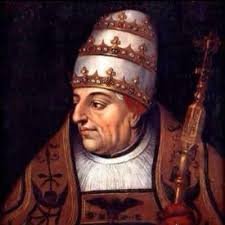 1. The line was actually drawn by Pope Alexander VI, the notorious second Borgia pope, in 1493. It was redrawn in a peace treaty the next year. You can read about this and Papa Borgia’s other tricks here. That thing on his head is a tiara, which was the official headgear of popes up until Paul VI set it aside in the twentieth century.
1. The line was actually drawn by Pope Alexander VI, the notorious second Borgia pope, in 1493. It was redrawn in a peace treaty the next year. You can read about this and Papa Borgia’s other tricks here. That thing on his head is a tiara, which was the official headgear of popes up until Paul VI set it aside in the twentieth century.

